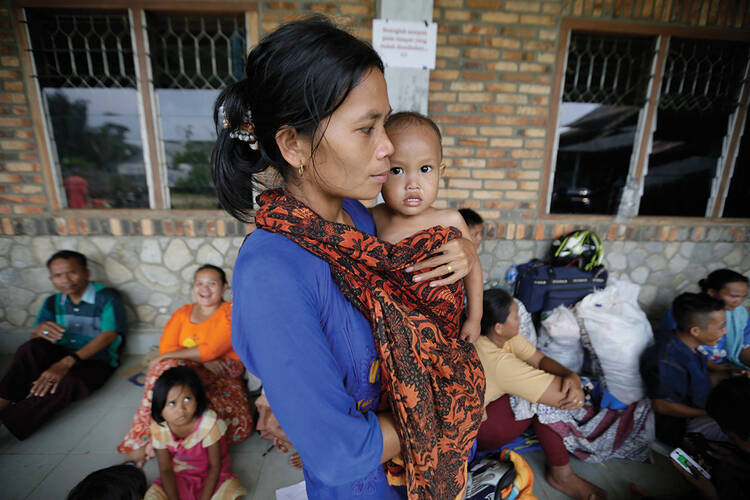During a press briefing after the report’s release on Oct. 14, Secretary of State John Kerry said these non-state actors “are now the principal persecutors and preventers of religious tolerance and practice.”“Most prominent, and most harmful, obviously, has been the rise of international terrorist groups such as Daesh, al-Qaida, al-Shabaab, Boko Haram,” said Kerry. “And all have been guilty of vicious acts of unprovoked violence.” Kerry used daesh, a term with derogatory undertones, to refer to Islamic State militants (otherwise known as ISIS or ISIL).
“Under their control,” Kerry said, “captives have been given a choice between conversion or slavery or death. Children have been among the victims, and also among those forced to witness or participate in executions—sometimes even of their own family members. Entire populations of religious minority groups have been targeted for killing. Terrified young girls have been separated out by religion and sold into slavery.
“The repugnance of these acts,” he said, “is only multiplied when the perpetrators seek to justify themselves by pointing a finger at God and claiming somehow that God licensed these acts. We are, and we will continue, to oppose these groups with far more than words of condemnation that are contained in this report.”
The report singled out non-state actors like Boko Haram and Daesh for the specific incidents of brutality they have become notorious for, but the ineffective response of state offices to respond effectively to such groups was also deplored. According to the report, “In the Middle East, Sub-Saharan Africa, and throughout Asia, a range of non-state actors including terrorist organizations, have set their sights on destroying religious diversity. … In these regions, religious intolerance and hostility, often combined with political, economic and ethnic grievances, frequently led to violence. Governments stood by, either unwilling or unable to act in response to the resulting death, injuries and displacement.”
As if to confirm the State Department’s grim assessment, a disheartening report on the state of Christians worldwide was released the same week in London by Catholic relief and development agency Aid to the Church in Need. A.C.N. warned that as persecution and conflict continue to threaten and dislocate Christian communities, the Christian presence throughout the Middle East may be brought to an unwilling end within 10 years—even sooner in particularly troubled states such as Iraq. The analysis, “Persecuted and Forgotten? A report on Christians oppressed for their Faith 2013-2015,” assessed the deepening plight of Christians in 22 countries.
A.C.N. reports that the contraction and displacement of Christian populations has been driven by the well-founded fear of genocide after a number of well-publicized and brutal attacks conducted by Islamic State militants and other extremists groups like Africa’s notorious Boko Haram. “Persecution has emerged as a key factor in a global upsurge of forcibly displaced people,” the report notes.
According to the report, the vast exodus of Christians from Syria, Iraq and elsewhere in the Middle East “highlights the very real possibility that Christianity could soon all but disappear from much of its ancient homeland.” A.C.N. researchers found that Christians in Iraq now number as few as 275,000. They add, “Many, if not most, of those who remain want to leave Iraq.”
Iraq’s Christian diminishment is being replicated, according to the report, in Syria, parts of Nigeria and elsewhere in Africa.
A.C.N. warns, “If the situation does not improve, Christianity is on course for extinction in many of its biblical heartlands within a generation, if not before.”
The State Department’s religious freedom report also raised concerns over a surge of anti-Semitisim in Europe last year and noted “continued deficiencies in the respect for and protection of the right to religious freedom” in Burma.
A backlash against Christians in China and the continued abuses of blasphemy and apostasy laws in countries like Pakistan, Saudi Arabia, Egypt and Sudan were also critically reviewed in the report.








